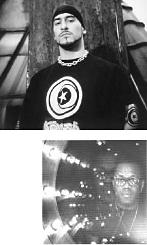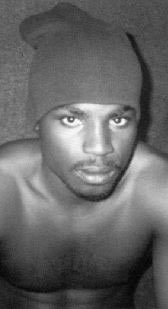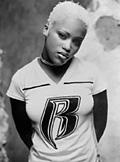Armand Van Helden just wants to be loved, though it’s a personal pathology he may well not be in touch with. After all, the man does spend a lot of time griping: turning down big-money remix gigs so that he doesn’t sell out, making ill-advised homophobic comments to the press when his music seeds gay dance clubs. But all this angst doesn’t come from nowhere; when you come down to it, Armand’s still a ruffneck, the same Beantown b-boy who a decade ago was sneaking into the Roxy and rummaging at Dollar-A-Pound. Nobody gave him shit—in both senses of the phrase.
Armand Van Helden
Killing Puritans (Armed)
Romanthony
R.Hide in Plain Site (Glasgow Underground/!K7)
That Armand’s survived the last 10 years largely unrefined, well, that’s that ruffian defense mechanism popping up again. A hip-hop head at heart, Armand found he could make house beats far more simply and successfully. But rather than kowtow to the culture that pays his (considerable) rent and comprises the near entirety of his (considerable) fan base, he’s practically eschewed it in everything but his music. Now, Armand’s finally flipped the bird at house with Killing Puritans, an album that actually points a rifle at the consumer and whose intro basically tells fans not to buy the record.
It’s not that Killing Puritans isn’t a house record. It is. Armand’s loathsome attempt at hip-hop breakbeat collage, 1998’s Sampleslaya: Enter the Meatmarket—now that wasn’t a house record, and boy did he pay for it. This time around, he’s older and wiser. Instead of running with the soulful house and proto-garage orthodoxy of last year’s seminal, and timely, 2 Future 4 U, he opts to neatly splice genres together, searching for the personal freedom in hybridity that his celebrity status in the club circuit largely denies him.
Most excitingly, at least for Armand, are his forays into what was once called hip-house. Years after the fact, that genre has been much maligned, but Armand brings it new life by taking elements of the genre rarely seen on other turf and making them sound eminently normal. Lord Sear, longtime denizen of New York’s underground, pops up for a beatbox session on the aptly titled “House Boxing.” Someone who I swear is Funkmaster Flex drops in for a spoken cameo on “Koochy,” telling Armand how much money he must have with that aristocratic name of his, before the track squeezes into a tiny box containing only reverbs of Gary Numan’s “Cars.” It’s beyond sampling; it’s downright theft, and thus imports another hip-hop clich頩nto the house party. It would be greater homage only if he pulled off some Bad Boy Bill antics and started scratching the tune.
Most crucially, Armand bows to rap by inviting Chi-town’s Common, a rapper as possessed with a confusing balance between love and enmity as Armand. In the moral struggle, Common’s turn on the hip-house epic “Full Moon” falls squarely on the dark side, nodding to the genre’s sprightlier past: “Girl I’ll house you in my hut/Thinking of a rhyme, trying to hold my nut.” It’s bootylicious, but pales in comparison to Armand’s own turn on the mike. Keeping in mind that he’s not exactly a rapper, Armand spits words that hit, bigging himself up for “creating the sound/from ‘Planet Rock’ to Boogie Down/ electrocute punters/with my photon stunners.” Lumbering, bumpy, and prideful, he’s the Mannie Fresh of house.
But nay, the genre boasts a Baby to round out its Big Tymers vision. New Jersey’s Romanthony, another devoted hip-hop fan (he tried to take a friend of mine to a Lost Boyz concert. Not the Hot Boys. The Lost Boyz.) is another victim of self-indulgent delirium, rapping and singing on his debut album R.Hide in Plain Site. Another of those house mavens who wows Brits and is cowed by Americans, he also features a self- destruct option—refusing gigs and interviews for fear of overexposure. At this rate, it’s an unlikely occurrence, yet it’s clear why he worries. R.Hide is the kind of house that makes clubbers purr even while teasing critics’ brains. Clearly listening to his James Brown and his Funkadelic, Romanthony has explored the soul roots of house (remember, house is black music!) and found fresh and exciting ways to explore them. Even better, he runs his voice through some kind of distorter that makes him sound almost like Prince! With the sex-funk god as divine inspiration, Romanthony croons like people do only in the shower or karaoke clubs. It’s anti-singing—off-key, but strained enough to imply sincerity. Nowhere is it more strangely delivered than on “Down 4 U,” where he pleads in full R. Kelly mode: “You don’t have to be lonely . . . I’ll be that one and only.” The lube gets warmer on “Body Language,” where he tries in vain to fight off his girlfriend’s advances while he’s trying to get his groove on at the club. “Don’t you need somebody to love? Don’t you want somebody to love?” his woman seems to be asking. After a moment’s hesitation, Romanthony realizes the answer is an unqualified yes. Like the Force MD’s once put it, love is a house.








